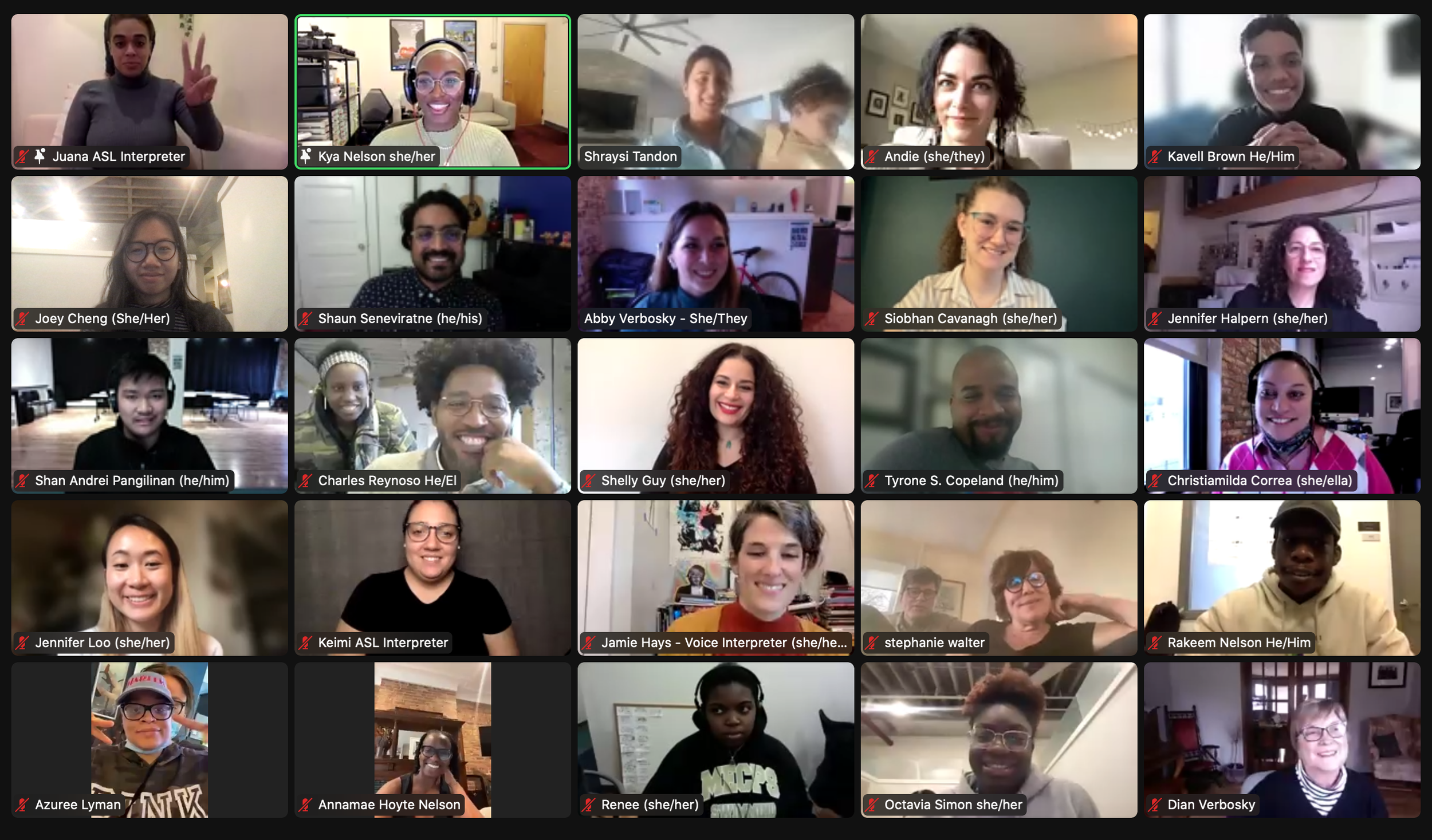Celebrating the Importance of Diversity and Access to the Film Industry
On Monday, April 4th, Reel Works held our third Town Hall on Access to the Media and Entertainment Industry. The goal of the event was to help young filmmakers explore barriers that must be overcome to break into the industry and what strategies they can take to pursue their dreams as creators.
The panel came from robust backgrounds and shared their levels of expertise from a wide range of perspectives. We are grateful for our panelists who highlighted the uniqueness of the industry while also cherishing and acknowledging hardships that got them where they are today: Kavell Brown (Partnerships Manager, Social Impact at LinkedIn), Andie Morgenlander (Co-Founder of Justice Film Collective), Shaun Seneviratne (Film & Media Instructor at Brooklyn STEAM Center), Shelly Guy (Deaf Community Coordinator and Assistant Director of Events at Body Language Productions), and Kya Nelson (Reel Works Ambassador and Doc Lab Filmmaker). This event was co-moderated by Shraysi Tandon (Reel Works Board Member, Documentary Filmmaker, and Journalist) and Shan Pangilinan (Reel Works Ambassador and Narrative Lab Filmmaker).
Panelists were asked "What do you think is the number one reason this industry is so hard to break into?". We asked our audience members and 70% of attendees said that it’s because it’s about who you know in the industry. One of our panelists, Kavell Brown, strongly agreed. "There's so few spots", he shared, while also highlighting "...that a lot of it is 'Who's going to send that referral email?' 'Who's going to put that script in front of that development executive?'".
One of our youngest panelists, Reel Works' very own ambassador Kya Nelson, shared that individuals also need tools and equipment in order to experiment with film so that they can know what they want to create. She asserted that numerous school programs don't offer many opportunities for students to experiment, and that her time with Reel Works has accelerated her career by developing strong mentor relationships.
One of our panelists, Shelly Guy, gave insight on her hope for the industry to be more inclusive. "As you can see, I use sign language and so I don’t use my voice. For me, to be able to represent myself I have to coordinate that through an interpreter. [When] Nyle DiMarco won Dancing with the Stars, he really paved the way for many within the deaf community to access that space. So this is a way that more representation has been exposed, but it’s not enough. We need more of that and I hope to see more improvement going forward,” she remarked.
Another panelist, Andie Morgenlander, stated that one of the biggest barriers they faced was with gender. As a non-binary individual, they shared an account where they felt uncomfortable with some of the stereotypes and mistreatment coming from both casting directors and directors. After these experiences, Andie decided to completely pivot from acting into directing, to try and make a change within the system – and and prevent others from experiencing what they went through. Andie is the Co-Founder of Justice Film Collective, an organization that produces films with the goal to amplify the voices of those who have been systemically denied opportunities in the film industry.
Panelist Shaun Seneviratne encouraged people to support other artists and filmmakers and to explore other people’s work. “I think we need to make sure we are supporting each other’s work as well as making sure we are immersing ourselves. Learn as much as you possibly can because there’s always going to be something you can take away from or could inform your art in [a new] capacity,” he said.
We are thankful to our panel members for sharing their insights and experiences from working in the industry, as our youth thinks about how our industry is progressing and work towards creating more inclusion and diversity.

